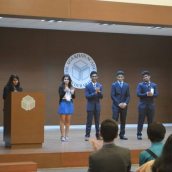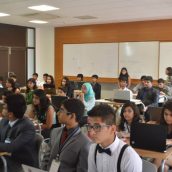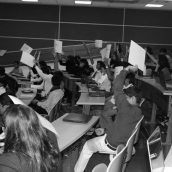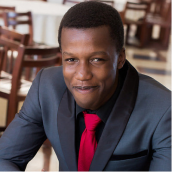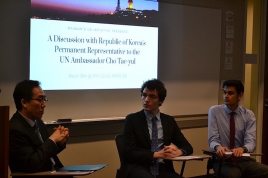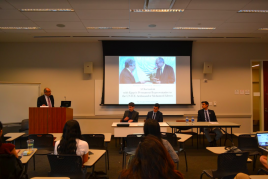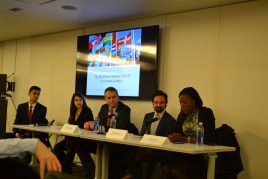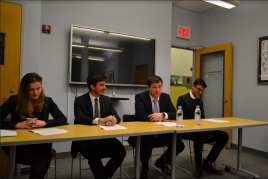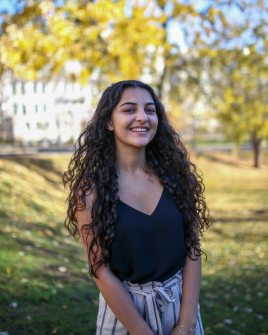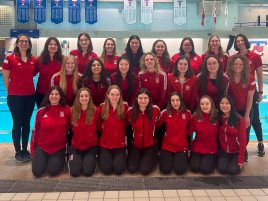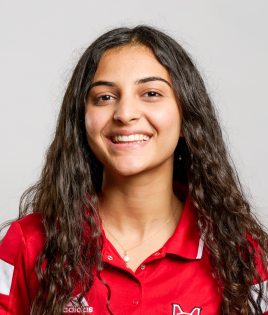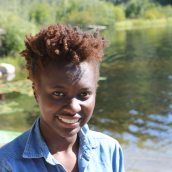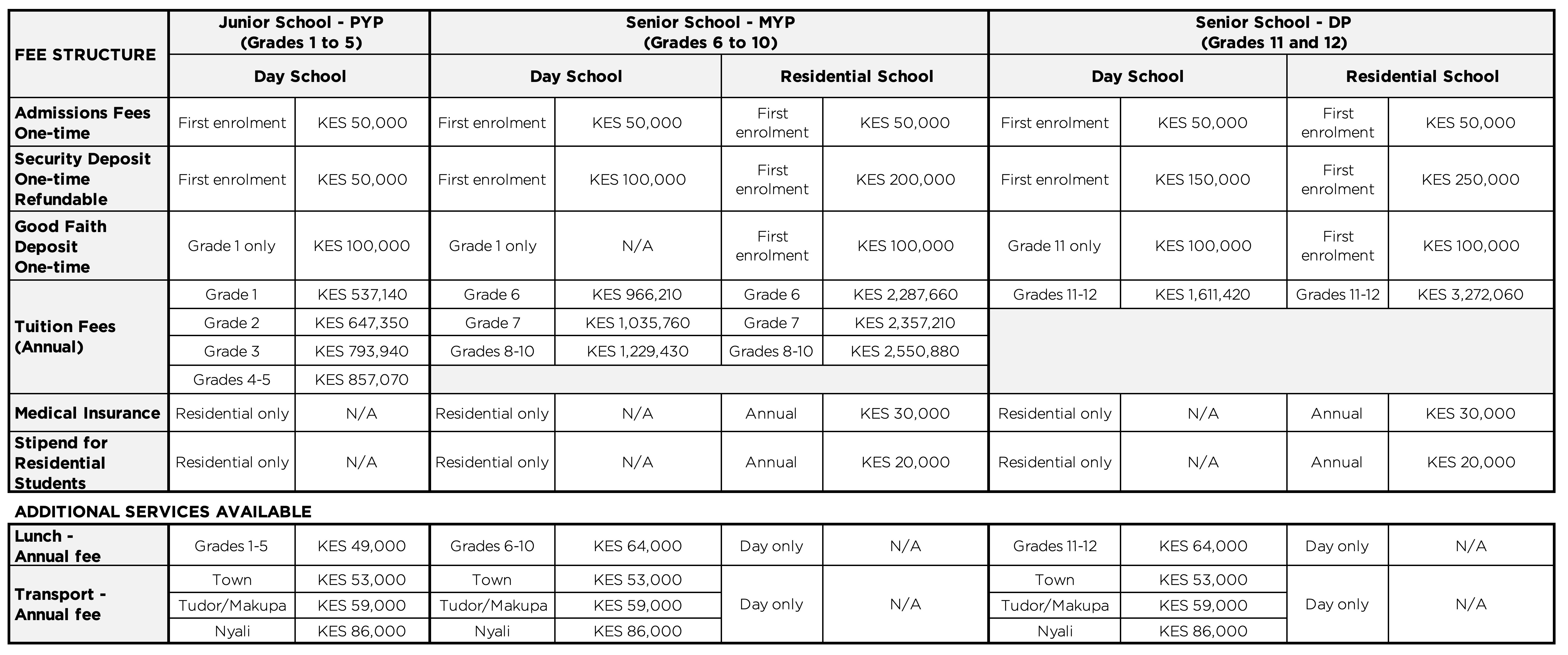AKAHMUN 2014 – The Future is Now
It all began on 22 August, 2014, when the Secretariat for the Aga Khan Academy, Hyderabad Model United Nations 2014 was finally announced. There was excitement in the air, as well as anxiety. We weren’t sure how we would raise the bar set last year. I was unsure of how the team would work together, how passionate they were and whether offsite management would work. I had organized the Model UN last year too, but this time, it was different. I wasn’t on campus and I didn’t know the new lot of students I was dealing with.
We began our journey with our first ever Model UN meeting. I expected the meeting to start late, for punctuality was rare to see. However, I got my first surprise, when every single member turned up not only on time, but half an hour early! That day I knew that no one would follow the timeline. Not because they’d miss the deadlines, but because their absolute dedication to AKAHMUN drove them to accomplish much more than what was required of them.
We planned out an extensive timeline of every aspect of the conference, a string of meetings and the nature of committees. Although everything looked perfect, I knew from experience that I must expect speed breakers, for if there are no problems, I know that I am surely doing something wrong.The first hurdle we encountered was in dealing with the day scholars. As part of the pre-Model UN preparation, we decided to organize trainings for the delegates. However, because this time around we had day scholars taking part too, we needed to ensure that we included them in every aspect of the conference. Arranging bus timings, coordinating with parents and taking permissions from teachers was a massive task. There were times when we wouldn’t be able to include the day scholars, when the timings wouldn’t match or when the day scholars had other programmes on schedule. However, we tried to reach out to as many as possible because it was a start, indeed. If it weren’t for my anchor, the Secretariat back on campus, it would have been impossible to organize such trainings.
The second hurdle we encountered was when we needed to finalise the committees. All the members of the Executive Board were excited about the idea of a Joint Crisis Committee (the Allied and Axis Cabinet), where the workings of one committee affect the workings of another. We had just one question in mind: would the first-time delegates be able to pull it off? The decision to go ahead with this committee was a risk, for crisis committees require a certain level of debate and experience. However, I also knew that with the Directors I had, I could trust that they would leave no stone unturned.
Logistics are by default the biggest area of concern in any conference, for it is by far the hardest job to pull off. The job entailed printing folders, placards, arranging the venue, the speakers, lights, cold drinks and much more. Last year, we didn’t have as many delegates to cater to, but this time around the number was massive. There was surely an inverse relationship between the number of days left for the conference and the number of challenges we faced. There were times when we were disheartened at a permission not going through or a delay in procurement of materials. Yet, it was the DP1 lot of the logistics team that stood strong. They travelled off campus, to far away locations, to get materials, send documents for printing and purchase eatables. I was truly surprised at the amount of effort they put in both during and after the conference. They worked during Diwali breaks and on weekends, like professionals, and never complained at having to do the most trivial tasks.Fast forward three months. It is 14 November 2014. After hours of tireless work, pushing ourselves to meet deadlines, and sleepless nights, it was D-Day. The air was filled with excitement and nervousness, as first-timers walked into committees, unaware of what to expect. And it wasn’t just the delegates, the Directors too were nervous, for most of them were taking the other side of the dais for the first time. Seeing the delegates buzzing through the committee rooms, we knew that the roller coaster ride had just begun. All we heard over the next three days were: Do we have projectors in all committees? Is the AC working? Are there enough chocolates in each committee? Where are the pens? Whether it be lunch, breakfast or dinner, we all forgot what it was to have a proper meal because our main focus was to get the delegates in committee.
All the efforts paid off when I received two unusual requests, over the three days of the conference. A member of the IT team, who had enrolled his name on the team to avoid participating in debate, came up to me and asked if he could participate in a committee. Initially, I was upset at this last minute request and so I asked him why he had made such a sudden request. What he replied then stayed with me throughout the conference. He told me that on seeing the enthusiasm amongst the delegates, he wanted to experience what it was like to be one. And so without any prior research, he sat through committee sessions and eventually won an award. This incident made me realize the potential at the Academy. It is only a matter of pushing them to apply themselves.
Another time, a 7th grader, who had entered the conference as a logistic member, came up to me and expressed his grief. On further probing, he told me that he really wanted to be a delegate, but couldn’t because he was a 7th grader. He had been so mesmerized by the whole event that he wished to take part. I smiled, with a sense of pride, at the impact of the conference. Over the next three days, the 7th grader debated issues in ECOSOC, argued with his seniors, and remained unintimidated by their age or knowledge.AKAHMUN 2014 had the power to bring about change. The JCC, which we were most skeptical about, brought out the best in delegates. The morning crisis, which initially made the students cranky, became the highlight of the three days. Students who initially didn’t openly accept the idea of a Model UN, jumped to take part. More importantly, though, I learnt, in the months leading up to the conference, the value of a great team. This team had dedication, passion and the will power, to make the impossible, possible. They were patient in low times, calm when faced with criticism and passionate about their goal. They worked day and night, at times when IB work was at its peak and applications lingering on their heads. They were truly the support system of this conference.
When I hear today how after the MUN, 7th grade students returned to their rooms, formed their own committees, elected their own Secretary General, came up with their own crisis and still use parliamentary language in daily conversation, I know that the Model UN tradition started in 2013, will continue for years to come. When I hear students asking about the next conference they can attend, I know that a spark has been ignited. When I hear that people are vying for the posts on the Secretariat next year, I know a culture has been sowed.
As we pass the baton on, we have realized the power of Model UN conference.
By Alisha Sonawalla
Joshua Ekirikubinza's Speech - AKA, Mombasa's Graduation, 2015
Teachers, I would like to begin with you. I am not going to thank you right now. However, I will start by saying sorry. For every time we ducked when we saw you coming down the hall, knowing we were not going to hand in that piece of homework. For every time we extended that deadline so far that it became inexistent. For every time we treated the piece of paper we are about to receive as your problem and not ours, and for every opportunity to thank you that we missed, thank you for being there from the beginning and here with us at the very end.
Parents, thank you. Those two words come nowhere near expressing the gratitude I know that every single student seated in front of you feels. Thank you for the support, whether financial or emotional. Do not worry; the product of your labor is awe-inspiring. In front of you sit the pioneers of the next generation, the heroes who will shape the world and leave a resplendent legacy for decades to come. DP2s, I just made a lot of promises to your parents, your job is to turn those incredibly romantic notions I sent flying their way into reality. And while it may seem like I just placed an immense task on your shoulders, I only ask of you what you are more than capable of.
In two years you have overcome every single obstacle that the IBO managed to throw at you, even though I know you imagined they sat in a boardroom discussing how to make your lives as difficult as possible. Now you are at your graduation and I know a lot of you are probably wondering what it was all for. I sincerely hope you do not expect me to give you that answer. In fact I hope you realize that no one in this room or outside it can give you that answer. As cliché as it is to say, the only person who can answer that question is you. Why did you decide to do a program renowned for its rigor? I hope it is because somewhere inside yourself you believed that you do have the ability to do anything you set your mind to; which would make everything I promised earlier a piece of cake.
So if I have not made myself clear yet, the world is yours. It is yours to shape and mould, yours to save and re-vitalize or yours to ignore and let crumble. If there is one thing you should know going forward it is that you no longer have the luxury to sit back and watch. You had about eighteen years of your life to do just that and I hope you enjoyed it. Soon the decisions about the world we live in will be left up to you. Make sure that when you are attending the next generation’s graduation the legacy you hand over is one that you are proud of.
The way to such a legacy is of course no walk in the park. There will be challenges, but the greatest one, I believe, is the day you question how special you really are. The day you stop believing you can impact the world around you is the day that ability is eternally lost you. Do not let the world tell you what you can and cannot do. Do not subscribe to the bigotry and intolerance that runs rampant throughout the world, you are far too intelligent for that. Do not gauge your abilities by comparing yourself to someone else. If you look to your left or right you will find a classmate and a team mate, not your competition. You do not benefit from being better than the person sitting next to you. I do not often quote people because I am ambitious in that I hope to create a few of my own one day, but Ernest Hemingway once said “There is nothing noble in being superior to your fellow man; true nobility lies in being superior to your former self.” Thus the key to your success does not lie in being better than everyone but, and the administration in no way coerced me to say this, in having a growth mindset. Please do not be that dentist who argues you are more important than the engineer.
Be accepting of the people around you. You cannot hope to change the world if you cannot even begin to accept the people within it. We are different. That is a reality you will have to accept. Also, please remember when you re-shape the world you affect everyone. Every culture, every race, every ethnicity and every religion. It is a complex puzzle, remember that. You can only solve it if you understand it.
Do not your let your education amount to just a piece of paper. As the incredible sagacious Albert Einstein said, “Education is what remains after one has forgotten what one has learned in school.” When you read that over 8,000 people died in an earthquake in Nepal earlier this month, do you simply let that statistic ring through one ear and out the other? Or do you let such facts inform your decisions about what you want to do to change the world? Do not think accumulating wealth is the way you change the world either. If you think I am being dishonest then how about you consider that there are over 5 million millionaires in the US alone. There is a treat in it if you can name more than 100 of them. I believe you know less than 100 names because they have not done enough to change the world. Martin Luther King Junior died without any financial assets at all or a will, almost 50 years later we still revere him. In the end you deserve to have your name written down in the annals of history, not a checkbook.
Finally remember as wonderful as you are, there is only one of you. You are one piece in a seven billion piece puzzle. Try and fit as snuggly as possible, keep your elbows, knees and feet in a position that does not bother anyone else.
So as I conclude this intentionally overly verbose speech, I leave you with a simple fact. Those are crazy enough to believe they can change the world, are often the ones who do. So here’s to the crazy ones - we can disagree with them, hate them, love them, quote them glorify or vilify them. About the only thing you cannot do is ignore them because they change things. They push the human race forward. I hope that you are all crazy enough to do it.
Raghuveer Vyas (Class of 2016): Advocating for change and development
Raghuveer Vyas graduated from the Aga Khan Academy Mombasa in 2016 with a desire to be a change-maker in our world. Due to his experience at AKA Mombasa, this desire has become a reality.
Raghuveer Vyas, far right, at a UN Initiative event at NYU.“My time at the Academy undoubtedly influenced where I am now,” Raghuveer said. “The Academy's strong emphasis on contributing back to society certainly further influenced my academic choices.”
Raghuveer pursued his undergraduate degree at New York University (NYU) in Global Liberal Studies with a concentration in Politics, Rights & Development. Currently during his final year, Raghuveer was admitted into NYU’s Bachelor of Arts (BA)/Master of Arts (MA) programme.
“Through this programme I hope to graduate with an MA in International Relations by 2021,” Raghuveer said. “I will be concentrating on Sub-Saharan African affairs and peace and conflict resolution in the International Relations programme.”
Since joining NYU, Raghuveer has been a member of the United Nations Initiative at NYU, which was created to increase the dialogue between international leaders and the youth/students who have become disconnected from the global political process. During his final year as an undergraduate, Raghuveer became the director of the Initiative because he believes “the UN Initiative’s mission and actions to be absolutely critical to the political discourse at NYU.” Due to his commitment and passion, Raghuveer said he has made some impressionable strides in the Initiative.
“I personally have worked to increase the participation of the African international leaders, such as the ambassadors of Egypt, Nigeria and the African Union,” Raghuveer said. “I’m also working to expand our panel discussion series, which focuses on thematic issues as opposed to the affairs of nation-states.”
As part of the Global Liberal Studies programme at NYU, students are required to spend a year abroad at one of NYU’s satellite campuses, such as Berlin, which is where Raghuveer decided to go. Through this, Raghuveer discovered his passion for climate change when he started interning with Climate Analytics, an international climate science and policy institution.
Raghuveer Vyas, far right, at at UN Initiative event at NYU between an ambassador from Egypt and NYU students.“I truly began to understand that climate change poses the single largest threat to the human species, and would disproportionately affect lower economic classes and citizens in developing countries, with the African continent poised to be one of the worst hit, “ said Raghuveer.
While in Berlin, Raghuveer worked as part of the climate policy team at Climate Analytics where he conducted scholarly research on the policies surrounding climate change mitigation and adaptation. As part of the team, Raghuveer said he was able to co-author a report, “Decarbonising South and South East Asia”, for the Asian Development Bank and the UN Environment Programme.
“The report aimed to investigate the current state of fossil fuel consumption in South and Southeast Asia and analyse the potential of renewable energy forms to replace these fossil fuels,” Raghuveer said.
Due to his time at Climate Analytics in Berlin, Raghuveer said he rejoined as an intern at their New York office during his final year at NYU. In New York, Raghuveer worked with the Implementation Strategy team, which assists developing countries, specifically countries in Sub-Saharan Africa and the Caribbean.
Raghuveer Vyas, far left, at a UN Initiative at NYU.“While the work I did was quite diverse, I worked quite closely with the small, and severely threatened, country of Saint Lucia,” Raghuveer said. “The country was attempting to receive financing from the international community to realise its ambitious National Adaptation Plan for climate change. I got to work on the national Private Sector Engagement Strategy (PSES), which chartered, among other things, a means through which the government could better engage with the country’s private sector in making them more resilient to climate change. This was submitted to the Saint Lucian government in early December, with the Cabinet of Ministers poised to read it in the new year.
Along with this, Raghuveer said he has worked on preliminary research for a universal Green Affordable Housing Project for Saint Lucia, which “aims to create a relocation and housing system that is resilient to the effects of climate change and compensate victims.” Raghuveer said he also drafted a funding proposal for Saint Lucia, “which aimed to revamp the national health sector and make it more resilient to climate change, both in terms of service provision and infrastructural soundness.”
Although his interests aren’t only focused on climate change, Raghuveer said he understands the urgency of recognising this phenomenon and the implications it can have on the entire world.
“Climate change is somewhat personal to me as I come from a farming family in Kenya,” Raghuveer said. “I’ve directly witnessed the impacts of a changing climate on the farm and seen how widespread the impacts are. For me, climate change has provided a unique lens through which to understand and question some of the perennial challenges facing the Global South.”
Reflecting on his time at the Academy, Raghuveer said he would not be where he is now had it not been for the various opportunities he received and the different skills he learned at the Academy.
“I first discovered my passion for global politics at AKA Mombasa through different platforms ranging from participating in Model United Nations, to having an incredible team of Humanities and Global Politics teachers who all really encouraged me to hone in my skills in the subject,” Raghuveer said. “A lot of necessary skills, such as critical thinking and analytical writing, were taught to us at the Academy, making it far easier for me to adjust to the demands of college.”
Raghuveer Vyas, far right, at the NYU Jordan Center.Although Raghuveer is unsure of what he’ll do after his Master’s at NYU, he said he is looking forward to what the future has in store for him.
“I’m excited to be a student during one of the most fascinating and influential eras in Global Politics and I’m looking forward to learning more about the various issues that grip us as an international community,” Raghuveer said.
By Anusha Lalani
Muskaan Bhaidani (Class of 2020): Journey to university and the Academy's impact
Muskaan Bhaidani is an alumna of the Aga Khan Academy Mombasa who was in the Class of 2020. Graduating with an impressive International Baccalaureate (IB) Diploma Programme (DP) score of 44 out of 45, Muskaan is now attending McGill University in Montreal, Canada.
Read on to see what Muskaan says about university life and how her time at the Academy contributed to who she is today.
Can you please tell us about yourself, Muskaan?
I did the IB DP from 2018 to 2020 and took economics, geography and English at higher levels and mathematics, biology and French at standard levels. At the time, I took these subjects purely out of interest, and I really enjoyed what I did. However, I’ve always wanted to work in the development sector, so I think geography and economics played into that really well. I also did my extended essay in French since I wanted to improve in it, but now that I am studying in Quebec, it’s been really helpful.
How did you manage to narrow down your interests to zone in on a career path finally?
That’s such a big question to answer! Honestly, I still don’t think I know for sure what I want to do. I think that the path that I’ve chosen to take is just to keep going ahead with doing what I like, which right now is international development with a focus on food insecurity. In fact, I did my personal project at the Academy around food insecurity, and passion has definitely stuck with me over the years. I’ve also taken an interest in social entrepreneurship, which I could potentially see myself pursuing in the future. Right now, however, I’ll be going with the flow and figuring things out one step at a time.
How did you find the university application process? What did you find challenging, and how did you choose between all the universities you got into?
The university process is definitely difficult and scary because of the uncertainty it entails. I applied to the US, UK and Canada. I personally felt that applying to Canada was a much easier process since you don’t have to send in any standardised test scores or personal statements. Their supplementary requirements, if any, are very minimal compared to the UK and the US. And since a lot of Academies students end up coming here, it’s nice to know that you have an established system to fall back on if you need to. I think the main reason I got accepted to the universities I applied to was because of my academic performance and extracurricular activities that I took part in at the Academy which have carried me to university. As for how I decided on McGill in the end, it was mainly a lot of research and making pros and cons lists. I tried to compare universities in terms of the course I’ll be studying, what I want to do in the future, opportunities I would get while still studying, acceptance rate, etc., and McGill stood out to me in all these aspects. Montreal is a great city for students, and I am glad it worked out!
What have you done since you joined university that you are most passionate about?
I have been a part of multiple clubs. One, in particular, is IYAD (IRSAM Youth Advisory Delegation), a youth advisory delegation to the United Nations, where we write policies and present them at the UN Headquarters in New York every year, and it’s been something I’m really passionate about as I used to participate a lot in Model UN. I am now an executive in the club! I also took part in Enactus, a social entrepreneurship club where we mainly try to help local businesses thrive, and it has been a rewarding experience. Lastly, I am also a member of the varsity artistic swimming team – I used to do a lot of swimming at the Academy till COVID-19 happened, and this was the perfect way to get back into it in an artistic form I had never done before!
How has university life been? And how have you been preparing yourself for this upcoming exchange programme you are participating in?
Life at McGill differs a lot from person to person, but it mainly consists of class in the morning, followed by any extracurriculars you may have taken up. I also have a student job as a student advisor, so I have that in my routine as well, besides swimming and clubs. Going into your third or fourth year in university also means you have to cook for yourself and run your own household of sorts – this actually makes up a substantial portion of a student's schedule. I don't find it to be incredibly different from the high school experience, it’s just more diverse in terms of what you study within your specified subject. I will be going on an exchange to UCL in London next semester. Of course, I’m nervous, but I’m looking forward to immersing myself in a new culture since I’ll only be there for three months. I do consider Montreal home now that I’ve lived here for three years, and going away from home is daunting. I hope it feels as welcoming as Montreal. But from what I understand, London is very diverse, with lots of things to do, and I know I need to put myself out there and be open-minded.
How has the Academy helped shape you and prepare you for university?
The Academy has taught me how to put myself out there confidently by never limiting me and assuring me that I can do anything I set my heart to. It has a way of boosting your self-esteem and shows you your strengths and uniqueness. I engaged in a lot of communal activities and opportunities at the Academy, so I don’t find it difficult to do the same at university, whether that’s applying for a challenging course, position or an exchange programme.
How important do you think it is for students to reach out to Academies alumni?
I think it’s very important. We all leave school and make great friends at university, but the friends you make at the Academy are just different because it is so easy to spend time with them for hours and feel surrounded by a sense of community and warmth. In fact, my roommate now at McGill is a good friend of mine from the Academy. It is easier to reach out on an established Academies-centric network if and when you need help, especially because all of us who have been through the application process are always willing to help whenever we can. Having an alumni community only makes it more accessible and convenient to reach out.
Do you have any advice for students going through the university application process right now?
Work on your predicted grades, those are very important. Build good relationships with your teachers and they can direct you on how to constantly get better at your subjects. And, this might sound cliché, but be authentic in your applications. You never know what a university wants in its essays, and in a pool of incredibly smart and talented applicants, the only way to truly stand out is to be your unique self. So, focus on what you are interested in as opposed to what you think others might find interesting.
Interview conducted by DP2 student Samhitha Paruchuri from the Aga Khan Academy Hyderabad.
Mirabelle Arodi (Class of 2012): Working Towards a Healthier Future
Indeed, the importance of these values to Mirabelle Arodi is obvious in her actions after graduation from the Academy.
Moving from Nairobi to join the residential programme at the Aga Khan Academy Mombasa, Mirabelle Arodi has come leaps and bounds. She was one of many students at the Academy on financial aid and reiterates her gratefulness for the access it gave her to an excellent education. She joined the AKA Mombasa community in September 2010, and graduated in the Class of 2012. She was also awarded a full scholarship at The University of British Columbia (UBC) in Canada and is studying for a Bachelor of Science in Medical Biochemistry. She has had a very eventful university career so far, and hopes to graduate with her degree in the summer of 2016.
While at university, she has worked as a residence advisor for two years now, building a community and running different events and programmes to help enrich student’s experiences while living in residence. Her own experience as a residential student at the Academy has allowed her to fulfill her responsibilities even more effectively.
“The weekly activities such as family dinners, baraza nights and Saturday night activities also stimulated me intellectually and allowed me to interact with students of all ages and backgrounds, which made the experience of living in residence all the more enriching. This is something that I strive to create as a residence advisor here in university” she recounts.
She has also worked as a research assistant with two different professors: one, as a lab assistant in a Biological Solutions in Engineering research project, and in another economics-based solutions to water systems in British Columbia. This past year, she was also part of the planning committee for the 7th UBC Okanagan Student Leadership Conference, which was attended by over 200 university and high school students. In addition, last year she was able to attend the Berkeley Model United Nations Conference as a delegate representing UBC Okanagan. This year, she is part of the executive committee for the UBC Okanagan Model United Nations Club (UBCO MUN), in which she helped train delegates for an external international conference, organised a football tournament for over 100 people, and is currently helping to organise the UBCO MUN Conference in late January. In the future, Mirabelle hopes to go to medical school and eventually return to Kenya where she intends to work in public health and raise the standards of healthcare.
Mirabelle also valued the advice she got in terms of preparing her for life in university and beyond.
“I definitely had excellent university counseling at the Academy and was able to get my first choice of university,” she says. “The process was made very easy and smooth by the structure of weekly university counseling sessions in which I was able to perfect my personal essays. In addition, the availability of the counselors, even outside of school hours, was a huge help and I was able to get constant support and feedback. The willingness of other teachers as well, not just counselors, to help in the university applications was much appreciated.”
But Mirabelle valued her experience at the Academy for more than just getting her to university.
“The Academy definitely enhanced my intercultural fluency, which has been very valuable in interacting with the diverse student and staff population at university. Its emphasis on being well-rounded also helped me to pursue different interests other than just academics. In addition, the discipline that the academy instilled in me has enabled me to keep on track at university, and not be overwhelmed by the freedom that university offers. This gave me an advantage over other schools that my peers attended; they had more of a hard time adjusting and finding their footing.”
She also reflects on the way her time at the Academy has affected the way she lives her life outside the academic sphere.
“I think one of the most important values that the Academy instilled in me is critical thinking. My peers often ask me why I ask so many questions about everything and I believe this is a testament to the Academy encouraging critical thinking not only in academics through Theory of Knowledge (a mandatory multidisciplinary course taken by all students in the Diploma Programme), for instance, but also through involvement in other extra-curricular activities. I believe that always reflecting and analysing has helped me narrow down interests that I pursue in university, because I am able to discern why I am doing what I am doing, and how it will impact me and those around me. In doing so, I am able to get as much meaning and value out of every activity that I pursue.”
Mirabelle is still actively involved in the local community at the UBC Okanagan campus.
“I am currently taking on a legacy project that has been going on at the university for the past three years. It is a cultural fashion show in which we have students model and represent clothing from different countries in the world, as well as entertainment in the form of dances, for example, from different countries. The show is a fundraiser and this year we will be supporting local charities in the Okanagan. In doing so, we will be more engaged with the surrounding community and be able to tangibly see the effects of our fundraising efforts.”
When looking back on her choice to pursue the IB Diploma, she recognises the value it brought to her academic capability and how it set her apart from her peers who came from different systems.
“I highly value the IB curriculum and completely credit it with me being where I am now; at a well renowned university on a full scholarship, excelling in both academic and extra-curricular activities. IB was definitely very challenging, and the workload prepared me very well to handle first and second year of university. My peers did not find it as easy to meet the academic demands of school. In addition, IB helped me to balance school work while still being actively engaged in extra-curricular activities which has been very valuable in enriching my university experience so far. In addition, the course content of IB is at a very high level, which enabled me to better understand university courses and in some cases, allowed me to skip ahead and take more advanced courses in my first and second years.”
Her passion for excelling and engaging with issues that are important to her shows no signs of waning. She feels strongly about problems regarding the lack of adequate healthcare in particular.
“I believe that healthcare is incredibly important and should be a right rather than the privilege it is in some areas of less economically developed countries. If I had all the resources at my disposal, this is where I would focus; ensuring that medical care is easily accessible and affordable for all.”
Fatema Sheikh (Class of 2012): Advocating Educational Equality
Fatema Sheikh carries the lessons she learnt during her time at the Aga Khan Academy Mombasa with her to date.
Fatema joined the Aga Khan Academy Mombasa community in 2009 and graduated in 2012. She is currently pursuing a Bachelor of Science in consumer behaviour and marketing at the University of Reading on a full scholarship – an achievement for which she appreciates the support she received at the Academy through university counselling. She has had a colourful university career so far and hopes to graduate with her degree in the summer of 2015.
In the summer of 2013 after her first year at university, Fatema underwent a three-month internship with Champions Life Academy – an organisation which recruits and trains undergraduate students from universities to raise funds for various charities.
“This internship appealed to me, especially because it was related to my course of study as well as being able to support a worthwhile cause.”
She raised funds for a charity called Action for Blind People.
“This internship strengthened a lot of my skills, such as communication, negotiation and time management as well as improving my people skills tenfold. I am now able to approach and communicate with anybody.”
In addition to the work she did over the summer, Fatema was also heavily involved in various community activities through the university’s RED Award scheme.
Currently, she spends her time as a volunteer working with special needs children. Her desire to get involved with something like this was sparked during her time at the Academy in Mombasa. As part of her creativity, action, service (CAS) component of the Diploma Programme (DP), she spent time working with children in the special support unit of the Junior School, helping them with one-on-one or small group sessions on areas such as reading and comprehension.
“As difficult as it is, it is equally rewarding. When you get the child to enjoy what they are doing and play a part in helping them learn, it is very fulfilling.”
One situation she reflects on is her success in working with a student with several impairments, such as delayed speech, hearing impairment and a slight problem with balance.
“Helping and encouraging her made me feel like I was contributing to her understanding of various concepts," she says. "Working with children is always a two-way thing – they teach you as much as you teach them.”
In the past, she has also been involved in cultivating a garden at a school as well as volunteering at a family church in Reading during Christmas.
Fatema also places great worth on the advice she got from the Academy in preparation for university.
“My experience at the Academy could not have prepared me for life at university any better. While at the Academy, I was immersed in a diverse and multicultural environment which allowed me to adjust relatively easily to university where I was and still am constantly meeting people from different backgrounds.”
Having studied in this environment made her more open-minded and accepting of other people, and that has contributed to her being able to make friends and interact with people more easily. She also reflects on the value the International Baccalaureate (IB) DP added to her education.
“Deciding to do the IB DP is probably one of the smartest decisions I have made. I feel that the work ethic and skills such as time management required to do the programme have prepared me to take on any challenge.”
However, it was not just the academic component of the programme that pushed Fatema to stretch her limits. The DP's CAS component requires students to be actively involved in extra-curricular activities, and the theory of knowledge lessons encourages students to think critically in all disciplines. She commends both these aspects of the programme for instilling values in her that have become intrinsic to the way she lives her life.
“It made me into a more well-rounded and holistic individual,” she says. “It prepares you for life outside of school and makes you think about things that would not cross your mind or that you normally would not consider important. My ability to think and analyse situations critically has improved significantly due to constantly being challenged throughout the programme.”
Fatema has also been able to think about the time she has spent away from home and how her experience at the Academy prepared her for life in a new environment. The abundance of the AKA Mombasa alumni at the University of Reading was a part of that, and she was able to form connections quickly within the community. She also felt that the Academy offered education and opportunities just as good, if not better, than the schools in more developed places such as England, which made it very easy to transition into the unfamiliar environment.
“The Academy and the IB encourages independent thinking and this served me well since it was the first time I was living away from home for a long period and where I would have to make a lot of decisions on my own.”
A lot of Fatema’s involvement in her local community at university is inspired by the ethics she picked up at the Academy. One of the projects of which she is particularly proud is an outreach programme she conducted while interning for the Kenya School Improvement Project (KENSIP) as part of the Aga Khan Foundation internships offered to DP students at the Academy. She visited rural schools and worked with the adolescent girls there towards educating and counselling them on the day-to-day challenges faced. Initially, she focused on identifying the key issues to be tackled and then tried to come up with a way in which sensitive issues such as abuse, early pregnancy and the menstrual cycle could be approached.
“I formed a very close bond with the girls I worked with as well as their teachers. I truly felt like I helped to make a difference and taught them something worthwhile. Although I spent most of my time with the girls, I also included the boys and led forums which discussed issues such as bullying and drug abuse.”
As part of her outreach project, she worked to raise awareness in local rural communities about equal education opportunities for both boys and girls.
Fatema's commitment to providing education opportunities remains strong to this day. In particular, she feels passionate about eradicating gender inequality when it comes to education in rural parts of the world. Her work with KENSIP highlighted the need for equal education for boys and girls as the key to future development.
“It is only through education and knowledge that the current and future generations can flourish. I believe the key to breaking the poverty cycle is improving education opportunities. So, if I had all the resources at my disposal, I would advocate for the importance of the girl child being allowed to attend and stay in school.”
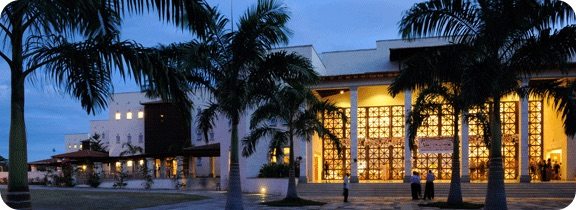
Fee Schedule
Fee Schedule for the 2023-2024 Academic Year.
Please click here to download the 2024-2025 Academic Year Fee Schedule (PDF format)
The above fees are applicable for the Academic year 2024-2025 and are subject to an annual review.
The Tuition fees include course fees, the use of essential course books, library books, co-curricular activities, IT infrastructure, science laboratory equipment, day trips, and certain classroom supplies.
The Residential fee in addition to the tuition fee also includes housing, weekend excursions and activities, laundry, and meals.
Notes
1. Miscellaneous Charges
1.1 Non-Refundable Admission Fee. Payable for students enrolling for the first time. The admission fee must be paid to secure a place for a child in the Academy.
This cannot be deferred or paid in instalments. The due date is one week after the offer has been accepted.
1.2 Refundable Security Deposit. Around 10% of the fees are payable on acceptance of admission and
should be paid together with the admission fee mentioned above. As the Security Deposit is different between
the PYP, MYP and DP, the differential will be invoiced when the child is transferred from PYP to MYP and from
MYP to DP. It is refundable when a student leaves the school as long as the required notice has been given in
writing and “No Dues” clearance is obtained from the Academy. No interest is payable on this deposit.
1.3 Good Faith Deposit. Paid for Grade 1, Grade 11 day students and all residential students to secure their
place, as part payment against their first Semester fee, due to limited capacity. This will have to be paid as soon
as the admission of the student is accepted for new joiners (including Grade 1)students and before 30 April for the
Grade 11 Students. All other residential students will pay the Good Faith deposit together with the Admissions Fee.
In the event that the student does not join the Academy, this deposit will not be refunded.
1.4 Lunch. The rates indicated above are applicable only if paid in advance at least for a whole semester
(50% of the total cost). The daily lunch rate is KES 400 for MYP and DP students and KES 350 for PYP students.
1.5 Medical Insurance Premium. Paid separately by residential students with the first tuition fee instalment.
1.6 Stipend. Paid separately by residential students and will be managed by the Academy. The students will be
able to withdraw a maximum KES 500 per week to cover any personal expenses. Any balance with the Academy will
be paid to the students at the end of the Academic Year.
2. Tuition
2.1 Sibling Discount. 5% is applicable for the second child, 10% for the third child, and 15% for the fourth and subsequent children. The discount will be adjusted according to the number of
children attending the Academy at the same time. This discount is not applicable where a family is receiving financial assistance.
2.2 Tuition Fee. Academic Year 2024-2025 fees are payable in two equal instalments (for each Semester), no later than 15 July 2024
and 15 December 2024.
2.3 Discount of 3% will be given on the tuition fees if paid for the whole year before the deadline (15 July 2024). These discounts
are applicable on the net amount payable after other discounts have been deducted and is not applicable to the families who receive
financial assistance.
2.4 AKDN Discount. AKDN employees, upon confirmation with any of the AKDN agencies, will get the following discount:
20% for residential students and 5% for any day students.
2.5 Currency. The fees can be paid in US dollars or Kenyan Shillings. The US Dollars fees will be indicated on the invoice using the exchange rate at which the banks are buying USD from the Academy. The Academy however reserves the right to change this policy.
3. Late and Outstanding Fees
3.1 A monthly surcharge of 3% will be added to the total outstanding dues older than 30 days.
3.2 If fees are not paid within one month’s period following the deadline, the student will be asked to stay at home or in the residences and will not be allowed to attend classes or participate in the other activities undertaken by the Academy. If the fees for the residential students are not settled within 2 weeks following the student being withdrawn from classes, the school may send the student back home. Any student who is out of classes for over 4 weeks could be asked to withdraw from school.
3.3 The Academy reserves the right to withhold results, school certificates, transcripts, or any other information and/or document until all outstanding dues are settled in full.
4. Financial Assistance
Newly admitted students who demonstrate financial needs can apply for Financial Assistance
through the Admissions office immediately after the admission has been confirmed. All current
students have to submit their applications before 8 March, 2024. An independent Committee is
responsible for reviewing and approving any request for Financial Assistance.
5. Withdrawal
If a student wishes to leave the Academy, three months’ advance notice of withdrawal must be given in writing and if not done the pro-rated three months' fees will be due and payable. School clearance will not be possible until any outstanding dues are settled in full.
6. Other Education-related costs
6.1 Field Trips. Students are expected to participate in compulsory curriculum and bonding trips as well as optional trips, for which the parents will be invoiced separately. Information on these field trips will be shared with parents at least one month in advance.
6.2 Exam fees. MYP and Diploma will be billed separately based on actual fees from the International Baccalaureate Organization (IBO).
6.3 Personal Computer. MYP and DP students are required to own a personal computer that meets minimum performance standards as most of the assignments as well as the communication between the teachers and the students are computer-based. The system should be loaded with either iOS or Windows, MS Office, Internet browser, and Antivirus.
7. General Notes Regarding Payment
7.1 The Academy does not accept cash for fee payments.
7.2 All payments must be made by direct bank deposit, bank transfer, or M-pesa even if payment is made by a third party such as a sponsoring organisation.
7.3 Parents are responsible for ensuring that the fee payments are made into the correct bank account of the Academy. In the unlikely event of any change in the bank account, the changes will be communicated to parents in writing via a hand-delivered letter from the Academy.
7.4 Parents must provide the finance office (mba-bursar@agakhanacademies.org), with a hard or an electronic copy of the proof of payment showing the full name of the student and Student Identification Number as soon as the funds have been transferred for issuance of payment receipt. The absence of this information may delay crediting the fees reflected on your account in our system.
7.5 The above terms and conditions may be modified, or new terms may apply to reflect changes in the law or our services. For further information please contact us at mba-bursar@agakhanacademies.org
8. Note on disclosure and sharing of student-related data and information:
Schools will store and may disclose and share information such as a student's name, address, telephone number, date and place of birth, honours and awards, exam papers and other works of the student, parents’ contact and other details, fees charged and outstanding fees against the student, and dates of attendance with third parties as and where is required for the normal operations of the school. The fees-related information can be shared with third parties to assist the school to collect fees where the payments have been delayed and not made for the services provided as per the above term.
